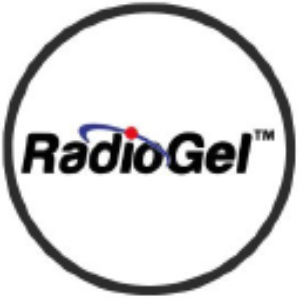Vivos Inc Files a New Patent on the Hydrogel Component of IsoPet®/RadioGel™
Vivos Inc. (OTCQB: RDGL) announced on September 14, 2022, the filing of a patent application for its hydrogel component of IsoPet and RadioGel in the USA and internationally. This development follows the recent Notice of Allowance for a patent related to their yttrium phosphate microparticles. The optimized hydrogel aims to enhance gelation and resorption characteristics while meeting FDA standards. Vivos continues to focus on strong intellectual property protection as part of its strategy to advance injectable radionuclide therapies for treating tumors in both animals and humans.
- Patent application filed for innovative hydrogel component, enhancing intellectual property protection.
- Recent Notice of Allowance for yttrium phosphate microparticle patent strengthens Vivos' IP portfolio.
- Optimized hydrogel production is expected to meet FDA GMP specifications.
- None.
Insights
Analyzing...
Richland WA, Sept. 14, 2022 (GLOBE NEWSWIRE) -- Vivos Inc. (OTCQB: RDGL), Vivos Inc announced today that they filed a patent application on their hydrogel component of IsoPet/RadioGel in the USA (16309: 17/943,311) and internationally (16389: PCT/US22/43274) under The Patent Cooperation Treaty (PCT).
Over the last eighteen months our team has worked with polymer contracting experts to optimize our hydrogel component. Our objectives were to maximize production output, to refine our specifications to yield the optimum gelation and resorption characteristics, to demonstrate reproducibility and to ensure that any residual solvents were minor and well below the FDA specifications limits for human therapy. As part of our improved Quality Management System, we are confident that the new Vivos Inc Standard Operating Procedure for Polymer Production will meet GMP/FDA Specifications.
Dr. Mike Korenko stated, “This was a substantial effort that revealed novel production insights that are not obvious and therefore patentable. As part of this process, we just filed a patent application on the hydrogel component, while keeping the production refinements as important proprietary intellectual property.
“This filing was on the heels of another milestone for Vivos, as the US Patent office recently gave us the Notice of Allowance for our patent to produce our yttrium phosphate microparticles, US Patent Application Serial No: 16-459,466. Our new particle patent and our hydrogel component patent filing are significant achievements consistent with our objective for strong intellectual property protection on both of our key components. We will continue to improve our processes to enhance our intellectual property as a fundamental business strategy as we continue our progress in establishing Radiogel™ and Isopet® as a next generation treatment option using Injectable Precision Radionuclide Therapy.”
About Vivos Inc. (OTCQB: RDGL)
Vivos Inc. has developed an Yttrium-90 based injectable Precision Radionuclide Therapy brachytherapy device, for the treatment of tumors in animals (IsoPet®) and in humans (RadioGel™). Brachytherapy uses highly localized radiation to destroy cancerous tumors by placing a radioactive isotope directly inside the treatment area using the company’s proprietary hydrogel technology. The injection delivers therapeutic radiation from within the tumor without the entrance skin dose and associated side effects of treatment that characterize external-beam radiation therapy. This feature allows safe delivery of higher doses needed for treating both non-resectable and radiation-resistant cancers.
Radiogel™ is a hydrogel liquid containing tiny yttrium-90 phosphate microparticles that may be administered directly into a tumor. The hydrogel is an yttrium-90 carrier at room temperature that gels within the tumor interstitial spaces after injection to keep the radiation sources safely in place. The short-range beta radiation from yttrium-90 localizes the dose within the treatment area so that normal organs and tissues are not adversely affected.
Radiogel™ also has a short half-life – delivering more than
The Isopet® Solutions division is used university veterinary hospitals to demonstrate the safety and therapeutic effectiveness for different animal cancers. Testing on feline sarcoma at the Washington State University was completed in 2018 and testing on canine soft tissue sarcomas at the University of Missouri was completed in 2019.
In 2018 the Company obtained confirmation from the FDA Center for Veterinary Medicine that Isopet® is classified as a medical device according to its intended use and means by which it achieves its intended purpose. The FDA also reviewed the product labeling which included canine and feline sarcomas as the initial indications for use. The FDA does not require pre-market approval for veterinary devices so no additional approval was required for treating skin cancer, which is the largest market sector. Following the demonstration phase, Vivos is able to generate revenue through the sale of Isopet® to University animal hospitals and private veterinary clinics.
Isopet® for treating animals uses the same technology as RadioGel™ for treating humans. The Food and Drug Administration advised using different product names in order to avoid confusion and cross-use.
Safe Harbor Statement
This release contains forward-looking statements within the meaning of the Private Securities Litigation Reform Act of 1995. You can identify these statements by the use of the words "may," "will," "should," "plans," "expects," "anticipates," "continue," "estimates," "projects," "intends," and similar expressions. Forward-looking statements involve risks and uncertainties that could cause results to differ materially from those projected or anticipated. These risks and uncertainties include, but are not limited to, the Company's ability to successfully execute its expanded business strategy, including by entering into definitive agreements with suppliers, commercial partners and customers; general economic and business conditions, effects of continued geopolitical unrest and regional conflicts, competition, changes in technology and methods of marketing, delays in completing various engineering and manufacturing programs, changes in customer order patterns, changes in product mix, continued success in technical advances and delivering technological innovations, shortages in components, production delays due to performance quality issues with outsourced components, regulatory requirements and the ability to meet them, government agency rules and changes, and various other factors beyond the Company's control.
CONTACT:
Vivos Inc.
Michael K. Korenko, Sc.D.
President & CEO
MKorenko@RadioGel.com








